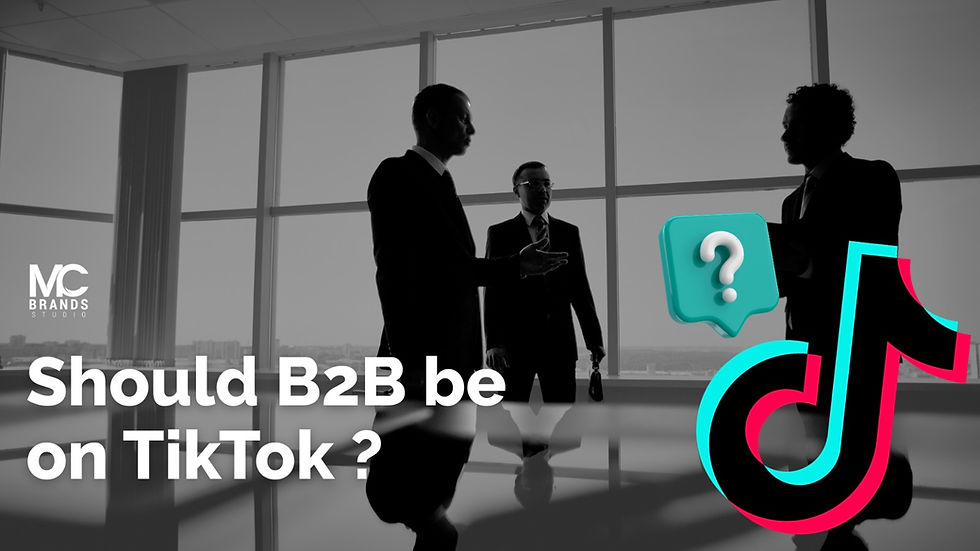Boost Your Business SEO with AI: How Large Language Models are Transforming Search Rankings
- mcbrandsph

- Nov 7, 2024
- 2 min read
With the rise of artificial intelligence, large language models (LLMs) have transformed the SEO landscape, reshaping how content is created, optimized, and ranked. At MCBrands Studio, we’re utilizing the potential of LLMs to strengthen SEO strategies for our clients, improving search visibility, engagement, and user satisfaction.

How LLMs Are Transforming SEO
LLMs are crucial in driving better content relevance, enhancing on-page optimization, and boosting rankings on search engine results pages (SERPs). Here’s how LLMs impact SEO:
Targeting User Intent with Precision LLMs can analyze and understand the intent behind search queries, helping SEO teams generate content that meets specific user needs. This alignment between content and search intent is pivotal for ranking in highly competitive SERPs. Reports that this intent-targeted approach increases the likelihood of content appearing in featured snippets and ‘People Also Ask’ sections by as much as 25%.

Automated Keyword Clustering and Semantic Optimization By analyzing millions of search phrases, LLMs help marketers go beyond basic keywords to identify semantic and contextual keywords—those related terms that search engines now recognize as essential for ranking. LLM-powered SEO optimizes content for clusters of related terms, resulting in up to 45% improved performance in search rankings for long-tail keywords.

Optimized Meta Content CreationMeta descriptions, titles, and headings are crucial for on-page SEO, and LLMs streamline this process by generating compelling and keyword-rich meta content. Data notes that sites utilizing LLMs for meta optimization achieved a 20% click-through rate improvement. Such meta content helps attract users to the page and signals relevance to search engines, further supporting SERP ranking.
Enhanced Content Quality and Readability By utilizing LLMs, businesses can produce high-quality content that is not only informative but also optimized for readability. This is essential for achieving higher dwell time and engagement metrics. Findings indicate that content crafted with the assistance of LLMs led to a 30% increase in user retention and an 18% lower bounce rate.
Automated Content Refresh for Trend-Driven Optimization can identify when topics or specific keywords trend in search behavior, helping content teams to update older articles with relevant keywords. This refresh boosts page authority and relevance over time, a technique that improves long-term ranking potential. LinkedIn data suggests that AI-assisted content refreshes resulted in a 25% improvement in organic traffic across various industry websites.
Data-Backed Benefits of Using LLMs in SEO
Higher Engagement Rates: LLM-enhanced content sees an average of 2.5 times greater engagement due to its alignment with user intent and its value in response to search queries.
Increased Organic Traffic: AI-driven SEO strategies boosted organic traffic by an average of 32% across test sites, according to LinkedIn’s findings.
Improved SERP Visibility: SEO content that includes LLM-powered optimizations for keywords, meta data, and semantic variations sees a ranking improvement of up to 30%, especially for competitive long-tail keywords.
Harnessing the Future of SEO with LLMs and MCBrands Studio
Integrating AI-powered LLMs with SEO is becoming a necessity as businesses strive to stay competitive in a dynamic digital environment. At MCBrands Studio, we’re committed to helping our clients achieve better engagement, higher rankings, and lasting impact by leveraging LLMs. If you’re ready to advance your SEO strategy and stay ahead in search, reach out to MCBrands Studio to explore the future of AI-driven SEO.

.png)



Comments